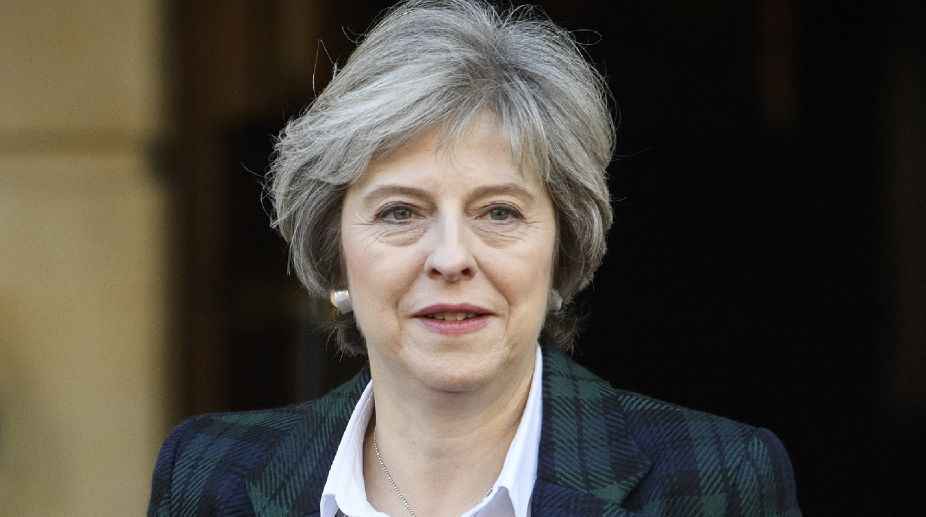EU, G7 leaders urge preventing escalation in Mideast
European Union (EU) and Group of Seven (G7) leaders have called for preventing a further escalation of the situation in the Middle East following Iran's retaliatory strikes on Israel.

British PM Theresa May (Photo: AFP)
After a roller-coaster course since the referendum in June 2016, Theresa May has eventually spelt out the contours of Brexit’s journey. The British Prime Minister has obviously taken a call on the practical side of the momentous issue, making it clear that the United Kingdom will need a “transitional period” to ensure a smooth exit out of the European Union. The assertion comes after hiccups in the House of Commons and bouts of uncertainty in negotiations with the EU headquarters in Brussels. Indeed, the most critical aspect of her speech in Florence on Friday was that Britain does not envisage what she called a “sudden severance” in March 2019. She has made it clear that the two-year negotiating window stipulated by the Lisbon treaty was not long enough to carry out a total strategic, political and economic reorientation of the country. Ergo, it may be a while before the consummation devoutly wished by the “Leave” camp is fulfilled. Ms May has eventually dwelt on the nitty-gritty. And in a moment of candour, she has confessed that the reality of Brexit is altogether “more complicated and difficult to negotiate than was advertised during the referendum campaign”. Weightage has, therefore, been accorded to exigence and continental solidarity. Brexit shall not be an abrupt development, after all.
The British PM has sought a long rope when the negotiations have started and stalled. For all the gung-ho initiative, the major impediment has been the lack of detail from the side representing the UK. This has been the fundamental problem that Ms May tried to address in Florence. While she has hinted at more time, there was little or no clarity about a preferred final destination. Indeed, there appeared to be a faint hint of continuity during the phase of “implementation”. Exit from the single market and Customs Union have been deferred. Britain and the EU would, for up to two years, retain access to one another’s markets on “current terms”, meaning the UK would stay within “the existing structure of EU rules”. The economic construct will, therefore, be retained between now and beyond March 2019 when the exit is likely to happen. However, EU citizens exercising their free movement rights will have to register in anticipation of some undefined post-transition immigration regime. The vital question of the judicial framework that will oversee the arrangement remains delightfully vague. The presentation in Florence was certainly the response from the Prime Minister on the Brexit challenges. The delay in seeking the kind of transition Ms May has now envisaged reflects the division within the Conservative party. In a sense, she has sought respite from domestic pressure. Suffice it to register that the separation from the single market has been deferred. Which in itself is an admission of the fact that there are red herrings across the trail.
Advertisement
Advertisement